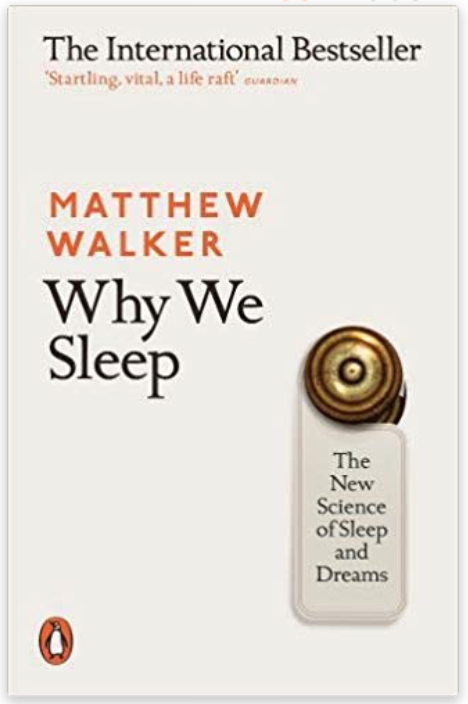Sleep
Since reading Why We Sleep last year - by the very nice man Matthew Walker - I’ve become motivated to consistently, and quite unashamedly, get a decent quantity of high quality sleep every night. Even if this oftentimes sees me going to bed at roughly the same time as my children :-).

Everyone should read the book, or at the very least listen to the podcasts listed at the bottom of this post.
Put Simply : The less you sleep, the shorter your life
1. Sleep is undervalued
Perhaps the biggest concern is that we have failed to recognise the long term damage that is done to our health by not consistently getting adequate sleep.
We at least understand that if we eat poor quality food and don’t exercise regularly that there are both short and long term consequences - even if our behaviours don’t always cohere with this knowledge.
Our attitude towards sleep appears to be based on an acknowledgement of the short term consequences only - of simply being tired and coping with caffeine and endeavour. Indeed this is a badge of honour for some.
What goes largely unacknowledged is just how injurious to our long term wellbeing poor sleep is, despite the science appearing to be unequivocal on the matter.
There are no profits to be made by suggesting people get a good night’s sleep - this might go some way to explaining this cultural blind spot. If the benefits of good sleep could be encapsulated in a pharmaceutical it would be considered the ultimate super-drug and we’ll all be taking it every day.
2. Sleep is important
Every animal sleeps and it has been part of nature for some 500 million years - which is, I grant you, a suspiciously round number.
There is a considerable cost to sleeping - not least leaving us rather vulnerable whilst we are enjoying it. If sleep did not serve some vital function it would be evolution’s great mistake; there must the exist some considerable benefits to offset the costly investment.
True fact (probably) : a billion-odd people do two massive sleep experiments a year - Daylight Saving. When clocks go forward an hour (so we lose sleep) heart attacks go up by 25% the following day, and correspondingly when the clocks go back the heart attacks drop by 21%.
3. If you don’t get good sleep
The following have been associated with poor quality sleep in a multitude of studies
- Weakened immune system
- Disrupted blood sugar causing weight gain
- Doubled risk of cancer
- Increased risk of heart disease
- Key factor in Alzheimers
- Contributes to all major psychiatric conditions including depression and anxiety
4. And if you do
And, the obverse.. You can expect to
- Live longer
- Have enhanced memory and creativity
- Look more attractive
- Keep slim and lower food cravings
- Lower your risk of cancer, heart disease, diabetes, dementia, and stroke
- Ward off colds and the flu
- And, perhaps most important, be happier
5. Why we sleep
For a long time we thought that sleep was for one thing, and then went in search of it. However, it turns our that sleep is infinitely more complex and profoundly more interesting and relevant to our health and wellbeing. There does not seem to be one major organ in the body, or process in the brain, that isn’t optimally enhanced by sleep.
6. What about caffeine and alcohol
Caffeine and alcohol are the enemies of a good night’s sleep.
It’s not enough to say that you can ‘fall asleep so no problem’. It’s not only the quantity of sleep that is important, it is also the quality - and the latter is much harder to determine.
Caffeine has a half-life of 6 hours or so and takes a long time to clear from your system.
Alcohol is a sedative so whilst it will certainly help you get into an unconscious state it has been shown to have a significantly detrimental impact on the quality of sleep.
7. What to do
- Go to be early, aim for 7.5 hours or more per night, you should wake up before your alarm
- Try and go to bed at a consistent time
- Limit screen use in the evening
- Definitely no phones in the bedroom!
- No caffeine after lunch
- Install a screen colour changer on your PC (like flux)
- Turn on ‘Night Shift’ on your phone
- Leave a bit of time between eating and sleeping
- Leave a bit of time between exercising and sleeping
- Cooler is better than warmer for bedroom temperature
Resources
Book
Why We Sleep by Matthew Walker
Podcasts
